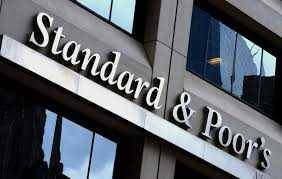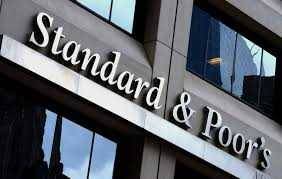The international rating agency Standard & Poor's (S&P Global Ratings) has maintained its long-term and short-term ratings for sovereign debt in foreign currencies at "SD," while also keeping the long-term and short-term ratings for sovereign debt in local currency at "CC" and "C," respectively, with a negative future outlook. The agency attributed the negative outlook for local currency debt to the possibility of the Lebanese government restructuring this debt.
In its report issued on the 16th, the agency noted that the implementation of reforms needed to trigger an economic recovery remains stalled due to the current political deadlock in Lebanon. Specifically, "Standard & Poor's" indicated that the presidential vacancy continues, following 12 electoral sessions, and that the current government is in a caretaker state, which limits its capacity to implement the necessary reforms requested by the International Monetary Fund (IMF). The agency also commented that it is unlikely that a debt restructuring project will take place.
According to the agency, referenced in the weekly bulletin of the Economic Research Unit at the Lebanese Bank of Credit, the war in Gaza has heightened local political tensions and security risks. Additionally, the agency reminded that the acting governor of the Central Bank of Lebanon, Wassim Mansouri, is urging Parliament to approve a law for "capital control," in addition to liberalizing and unifying exchange rates and establishing a legal framework that prevents the central bank from financing the government. All of these reforms align with the prerequisites set by the IMF program.
As for the issue of restructuring the banking sector, the agency pointed out the difficulties in implementing it currently due to the lack of consensus among the concerned parties on the type of losses, their extent, and how they should be distributed. It highlighted that amendments to the banking secrecy law and those introduced to the "capital control" draft law require further development to support the recovery of the financial sector.
Moreover, the agency noted that the macroeconomic crisis has led to a significant reduction in the size of the Lebanese economy, which shrank from $53 billion in 2017 to about $16 billion in 2023. The agency also estimated that the GDP per capita fell from around $7,800 in 2017 to about $3,000 in 2024. "Standard & Poor's" projected that GDP would contract by 0.2% in 2024, compared to a similar contraction of 0.2% in 2023 and a contraction of 0.6% in 2022. The agency remarked that a slight recovery in private sector economic activity and tourism will support economic growth during the period between 2025 and 2027.
On the financial front, the agency pointed out that the 2024 budget, approved last January, did not include essential reforms as required by the IMF and therefore needs adjustment to enhance revenue collection (updating tax brackets and some fees to compensate for the deterioration of the Lebanese pound's exchange rate against the dollar in the black market). In parallel, "Standard & Poor's" revealed that the Lebanese government will not issue treasury bonds in the first quarter of 2024, noting that the Central Bank has not participated in these auctions since the second half of 2022. Overall, the debt-to-GDP ratio is expected to reach approximately 285% in 2023, compared to 160% in 2019.




